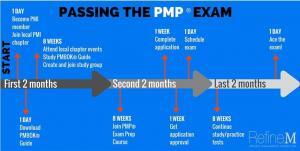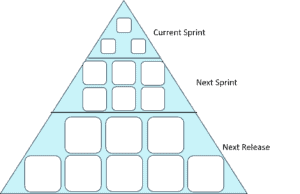Retaining your Emotional and Mental Strength during COVID-19

We all know how to keep physically healthy, increase our immunity and stay safe from the COVID-19 virus. We are following social distancing rules, washing our hands frequently and eating healthy. But what are we doing to keep ourselves emotionally and mentally healthy?
How Outcome-Based Agile Transformation Services Can Help You Achieve The Results You Want

We believe Agile can significantly improve a team’s capability to deliver tangible outcomes quickly. In fact, because we are so committed to developing Agile capabilities—and to accelerating business outcomes—we are pleased to offer our clients new Outcomes-based pricing as part of our Agile Transformation practice.
All About PDUs: What You Need to Know About Professional Development Units

In the project management community, a common abbreviation is PDU. Go to any Project Management Institute (PMI)® chapter meeting and you’ll hear a lot about PDUs. Research Agile or project management training opportunities on the Web or in your area and you’ll find out even more about PDUs. What are they, who needs them, and how can you get them? This post will answer those questions and more.
Retrospectives for Agile and Waterfall Teams

Two challenges that project teams often face are capturing and acting on knowledge during a project and continuously improving during a project. How can teams capture learning in a way that enables them to act on lessons learned before it is too late? What tools can teams use to improve now rather than later?
Learning from experience during a project can be one of the most important parts of the project for teams that struggle to continuously improve. On Agile projects, retrospectives typically take place at the end of each sprint and provide teams a means of exploring what went well and what could have gone better. Teams emerge from the retrospective energized and ready to improve on their next sprint.
What is a Realistic Timeline for Passing the PMP Exam? [Infographic]

One common question for project management practitioners looking to achieve their Project Management Professional (PMP)® certification is, “How much time do I need to get ready?” Many candidates do not pass on their first try because they do not allow themselves enough time to study and develop a plan, so you should set a realistic timeline and follow it closely. Having a realistic timeline will allow you to do what you need to do to prepare, including fully reading and understanding A Guide to the Project Management Body of Knowledge (PMBOK® Guide). Since the exam changes every few years, this timeline can also tell you whether to earn your certification with the old test or wait for the new one.
Progressive Elaboration Techniques for Agile and Waterfall Teams

Teams in the traditional project management mode (or Waterfall) may be hampered by their structure from fully adopting Agile. Despite this constraint, they can still take advantage of many key Agile practices, just in different ways. Read on to find out how any project team can take advantage of the practice of progressive elaboration to move toward early and continuous delivery of value to the customer, satisfying one of the twelve Agile principles.
Eleven Tips for Passing the Project Management Professional (PMP) Exam

Earning the Project Management Professional (PMP)® certification demonstrates experience in project management and the ability to add value to organizations through use of project management skills. One barrier to earning the Project Management Professional (PMP) certification is the difficulty of the exam. Learn more about preparing for the exam through these tips, which range from building your study plan to managing exam day itself.
If you’d like to talk to us about your exam prep after reading these tips, get in touch today.
Continue reading→
Agile Practices for Waterfall Teams Part 2: Maintaining a Backlog

Agile Practices for Waterfall Teams Part 1
Top 5 Books for Beginning Project Managers

Project managers just starting out may wonder how they can continue to build their knowledge and skillsets. Based on our project management reading, we have identified five books to help beginning project managers, as well as those with some degree of experience, establish continuous learning and dedicate themselves to further success.
